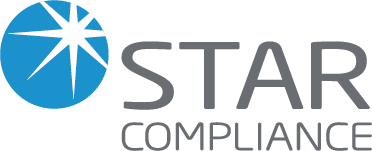In the UK, the Financial Conduct Authority (FCA) is looking to bring higher and clearer standards of consumer protection in retail financial services through its Consumer Duty Act, which will see Consumer Duty applied to up to 51,000 financial firms regulated by the FCA*. The regulator is taking a phased approach to implementation, with the first phase – for existing products or services (open to sale or renewal to retail clients) – coming into force on 31 July 2023, and the second, for closed products, on 31 July 2024.
The FCA states that the regulation will lead to “a major shift in financial services” and will “fundamentally improve how firms serve consumers”, requiring them “to put their customers’ needs first”. In practice, this should mean that customers will receive clearer communications; be offered products and services that meet their needs and offer fair value; and receive the customer support they need, when they need it.
“We expect firms to step up and put consumers at the heart of what they do and we’ll be holding senior managers accountable if they do not.” – FCA
With the first implementation date looming, firms and compliance professionals need to be prepared and have a clear understanding of the three main components of Consumer Duty:
Consumer Principle – This reflects the overall standard of behaviour the FCA requires from firms. The new Principle 12 replaces the regulator’s existing principles 6 and 7, which use language such as "treating customers fairly", replacing it with “good”. This imperative is to ensure firms act to deliver good outcomes for all retail customers.
Cross-cutting rules – These outline three behaviours the FCA expects from firms in how they act to deliver good outcomes, and how Consumer Duty applies across all areas of conduct firm-wide.
-
- Act in good faith towards retail customers
- Avoid causing foreseeable harm to retail customers
- Enable and support retail customers to pursue their financial objectives
-
- The governance of products and services
- Price & Value
- Consumer Understanding
- Consumer Support
As part of the framework, firms must consider the end-to-end lifecycle of the product and services they are offering, and continuously learn from their growing awareness of real customer outcomes. This means that customer outcomes need to be monitored and regularly reviewed so that action can be taken to mitigate any that are unsatisfactory. If firms are committed to embedding Consumer Duty properly into their culture, the board must take responsibility and senior managers must be held accountable for customer outcomes. This will also be critical for ensuring senior managers meet their obligations under the Senior Manager and Certification Regime (SMCR).
However, effectively demonstrating adherence can be difficult. Even the most prepared firms are likely to have silos of information across multiple platforms, as well as segregation of breach recording solutions run on spreadsheets. Pulling this all together in a single place in a timely fashion is extremely difficult and time-consuming.
Mapping and documenting the end-to-end process – all the way from product design through to sales, and then on to post-sales support and maturity – is a key challenge for manufacturers and distributors of products and services. If they are unable to provide the necessary detail, there may be gaps that cause firms to fall short of the new regulatory requirement to deliver good outcomes.
Similarly, firms will need to decide on the metrics and data they are going to measure and demonstrate their readiness for compliance with the new legislation by outlining their rationales for these processes. This is a huge challenge, as firms must look at how they will incorporate these metrics into their current dashboards and reporting mechanisms for their board of directors. Siloed data, by definition, is spread out, which makes it difficult for firms to focus on prevention rather than retrospectively identifying issues and ‘fixing’ them.
The accountability aspect of Consumer Duty is also a major challenge. Firms will need to decide and document:
- Who will be accountable for each part of the consumer journey
- Who the Consumer Duty Champion (which must be assigned to a non-executive director) will be
- How to evidence active dialogue between the Consumer Duty Champion and the Board
Employee training also presents challenges. Employees will need to be made aware of their obligations under the Consumer Duty Act and firms must be able to illustrate how behaviour that demonstrates compliance has been reinforced. This training needs to go beyond educating the workforce on what Consumer Duty is and may need to be tailored to specific departments and roles. But if all these steps aren’t documented, the FCA will assume that this hasn’t taken place – and a firm can then find itself in hot water.
The good news is that regtech software is available to help meet Consumer Duty requirements. This is because there are clear links between Consumer Duty, SMCR, and the Training and Competence (T&C) regime. For example, SMCR and Consumer Duty contain specific instructions regarding the functions and responsibilities of senior managers, and all three regulations require employees to be trained so that they understand their obligations and for this to be maintained in the future. These steps must be demonstrated through record-keeping, and access to data and metrics.
That’s why robust individual accountability regime (IAR) and T&C solutions are critical to ensuring a firm's success in implementing and conforming to Consumer Duty. Not only do IAR solutions allow firms to use data and metrics to prepare for Consumer Duty with traceability and record-keeping; but they also make it simple to report breaches of Consumer Duty to the regulator by having all available data in a single integrated solution.
At the same time, T&C solutions can be used to educate employees and bring them up to the desired level of competence. This includes pushing out training programmes to help employees understand what Consumer Duty is, what it's for, and the role they play in Consumer Duty. T&C solutions can also be used to support a cadence of annual training to maintain alignment with the latest regulatory imperatives and to ensure employees are conforming with regular touch points and assessments. By doing so, firms will have the confidence and certainty that they are doing everything they can to deliver good outcomes.
IAR and T&C solutions allow firms to build a body of evidence for the regulator to demonstrate that the necessary steps are being taken to ensure Consumer Duty is being met. Although the FCA has provided guidance on what firms should do, it’s ultimately in the hands of individual firms to decide how they will execute against Consumer Duty.
Hoping for a deadline extension is not a strategy, and failure to comply with the Consumer Duty Act could mean huge fines and hefty penalties. Any firm that hasn’t yet completed its preparations needs to take action today.
* Based on the total number of regulated firms on the FCA Register, as of July 2021.



